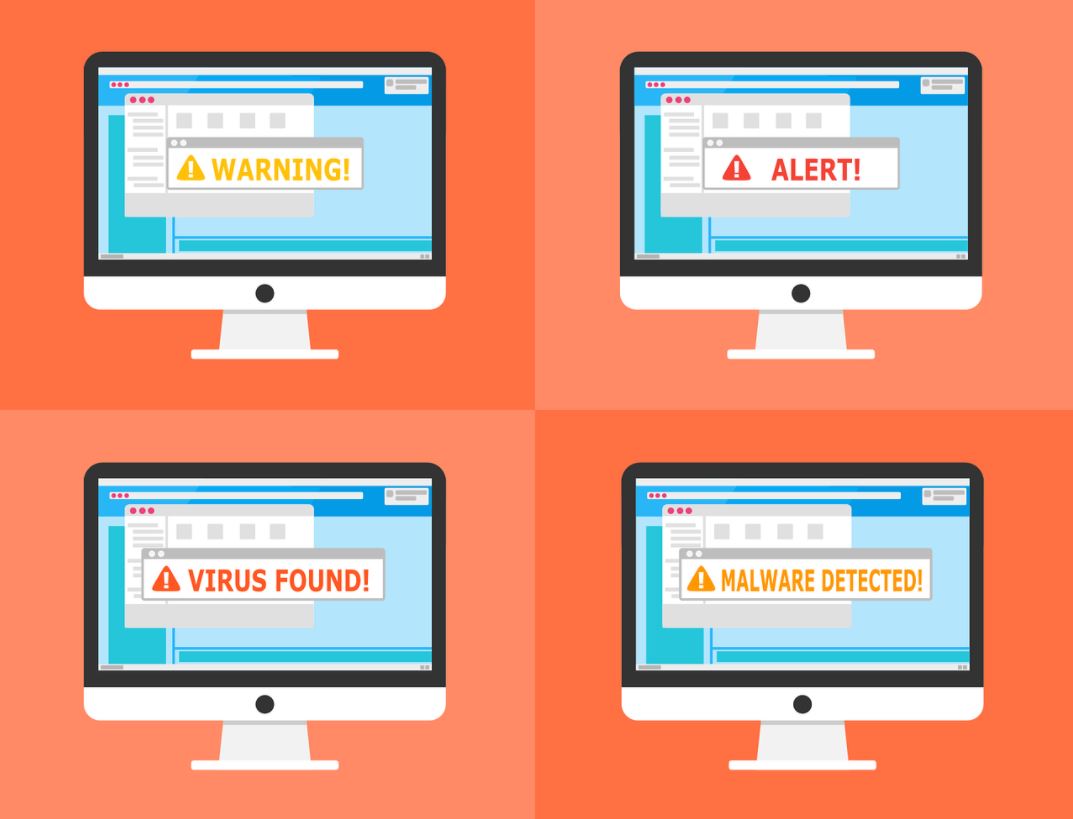We briefly describe How to identify viruses on your PC or Mobile phone. If your computer or smartphone is running strangely after installing or playing a new game online, clicking on a link in an email, or visiting a new website, it might mean that your computer or phone has been infected with a virus.
What do we mean by running strangely? We mean loading slowly, freezing up, pop-ups randomly opening, or unidentified programs being installed. That’s just the tip of the iceberg though — a virus can attack your computer, phone, or smart mobile in many ways.
What is Virus?
A computer virus is a lot like the flu. It can be dangerous and spreads pretty easily through your computer’s hard drive and to other computers (if you send infected files). Just as a flu virus cannot replicate itself without a host cell, so a computer virus can never replicate without the data in your computer or phone hardware.
A virus is a kind of malicious code or program that is designed to automatically infect the system immediately after your device runs. A virus doesn’t need your permission either. So, it’s very important to know or identify viruses. Because it starts to run without your knowledge and corrupts or completely disables your files. In some cases, viruses even steal your personal information and send it back to their creator.
Signs to Identify Virus:
It’s easy to get the virus on a PC or phone but identifying a virus is really hard. So, here are some significant signs to identify a virus entering into a computer or phone.
- Your computer or phone immediately slows down or does not work properly
- Unstoppable pop-ups or spam-type messages appear on your Computer LCD or Smartphone home screen
- Losing control of your computer or phone
- Automatic running and closing of unknown or non-existent programs
- Mass emails from your computer or mobile sent to other email addresses without your permission
- Disabling the security system of your computer or phone
- Your phone or PC battery drains quickly
- This message repeatedly shows that your computer or mobile’s memory is full
How Do You Get a Virus?
Viruses are both very easy to get and very easy to avoid. All you need to do is exercise caution and have an antivirus installed on your computer. Here are a few things you need to avoid doing to keep your computer and phone healthy:
- Don’t open emails from people you don’t know
- If you don’t trust the sender don’t click on links in emails
- Don’t visit weird websites or click on links on them
- Avoid social media scams
- Don’t download shady apps
The general rule is: that if you don’t trust the sender, don’t trust the content.
How Does A Virus Attack Technology?
When you get a virus, it’s sneaky and works behind the scenes. You may not realize you have one until the damage is already done. How it works is a little more complicated, as there are many different types of viruses.
In simple words, a virus is downloaded at the moment. When you open or click on an infected or suspicious web link or software. It will hide deep in your hard drive (if not caught by your antivirus program) and will begin to affect your computer’s hard drive and processors. Depending on the virus, it could break your computer, or it could steal your data and personal information.
How to Check For and Remove The Virus?
In a lot of cases, you’ll need an expert to remove the virus. Some devices can be accessed remotely by professionals, but you can also bring them into a brick-and-mortar shop for repairs. To find a good tech professional near you, look for company support on Google. They’re fast, and teach you how to fix the problem so it won’t happen again.
If you caught the virus early, you may be able to remove it yourself with these simple steps.
- Scan your computer or phone with antivirus software. There are many free and reliable ones online, such as Avast. Some companies even offer free trials.
- If the scan finds something, it should prompt you to delete it. Immediately give the antivirus permission to delete it. If nothing shows up, you’re going to have to take your device to a professional.
- If the antivirus does not delete the virus, you should have the option to find its file location. Go to that location on your computer and attempt to delete it.
- After deleting the file, go into your Control Panel and uninstall every application that you don’t recognize.
- Clear your recycle bin
- Clear your internet browsing history and cookies
- Run the scan again
If you are still worried about your computer, professionals will happily go in and make sure it’s clean. Just remember that it’s much easier to avoid a virus than remove it, so practice caution online and be sure to teach the same habits to everyone who uses your tech. We hope this information was helpful to you and good luck with keeping your technology healthy and clean!
To read more useful information about Technology scroll our blog.


[…] Also read: How to Identify Virus of Your PC or Mobile. […]